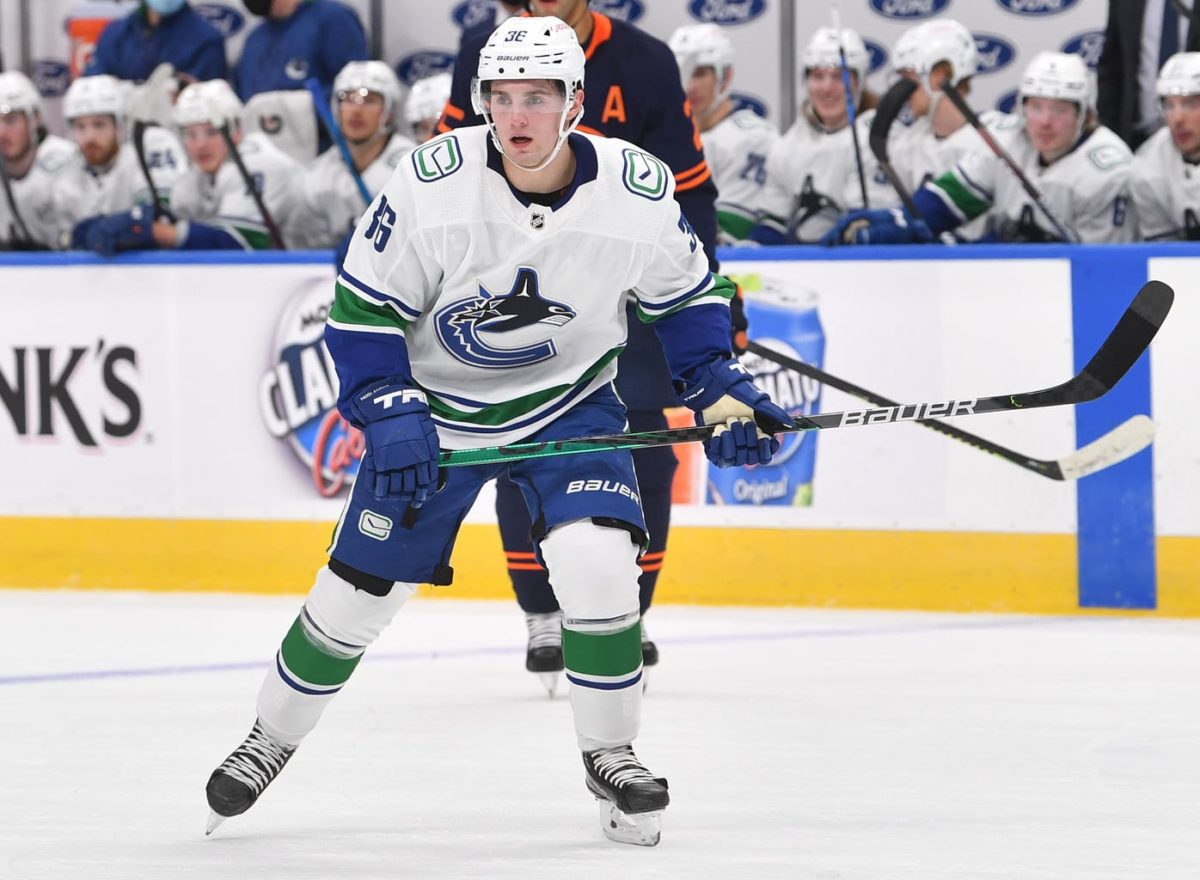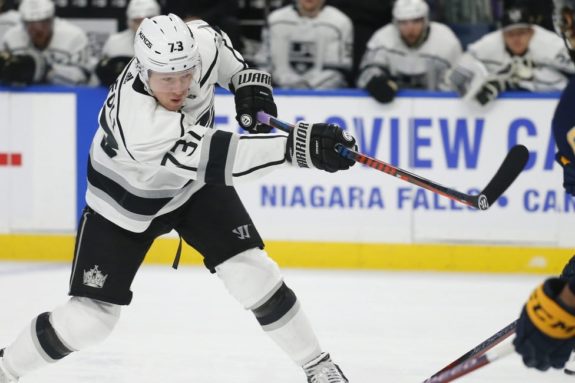One of the harder things to do in professional sports is watching a former player of one team go on to be successful with another. It’s not news to the Vancouver Canucks organization or fan base that they’re seeing Tyler Toffoli’s true value during the Stanley Cup Playoffs as a member of the Montreal Canadiens.
It begs the question: what was the reason to not bring back Toffoli? There were so many boxes he checked off that seemed to be a perfect fit with the Canucks, and quite frankly, were exactly what Vancouver needed this season. He could have provided excellent secondary scoring, would have been a great compliment to Vancouver’s top two centers and has clearly shown he is a playoff performer, as exemplified during Montreal’s two series wins so far.
Secondary Scoring
Secondary scoring was a big issue for Vancouver this past season. The injury to Elias Pettersson didn’t help (which forced him to miss 30 games with a wrist injury), but it also exposed the Canucks lack of secondary scoring outside of their big guns. Toffoli alone with Montreal this past season put up 28 goals and 44 points. Outside of Brock Boeser and J.T. Miller, who led the team in scoring with 49 and 46 points respectfully, the offense in Vancouver took a massive dip.

The next highest scoring player was Nils Hoglander, who respectfully, as a rookie, put up a solid 27 points in all 56 games. The next forward after that: Tanner Pearson with 18 points. That was good for the sixth-most among Cancuks forwards. Following Pearson was Brandon Sutter with 12 and Tyler Motte with nine. That’s just not good enough for any team who not only wants to make the postseason but go on a deep run. As fans and teams have come to understand, depth has never been more important than in today’s game.
Compliments To The Center Depth
As mentioned earlier, injuries didn’t do any favours for the Canucks this past season. But when healthy, Pettersson and Bo Horvat form a pretty formidable duo up the middle. What would have really come into play would have been having another winger to complement Vancouver’s top centers.
Yes, both Boeser and Miller were big contributors throughout the Canucks season, finishing number one and two in team scoring. In addition, they also carried more responsibility once Pettersson went down. With Toffoli playing on the second line in Montreal, this would have been a huge advantage to a fully healthy Canucks team. Being paired with Bo Horvat, like they were a season ago, would have leveled out the lineup and would have kept the combination of Miller-Pettersson-Boeser together for another year. It also might have helped players like Hoglander have an even better rookie season while taking the pressure off of a few players who were expected to step up.
Playoff Experience
It’s easy to say now that Toffoli has been a big-time player for the Canadiens, as evidence from his series-clinching overtime-winning goal in Game 4 against the Winnipeg Jets. But it’s not just his overtime heroics or advancing to the semi-finals of the Stanley Cup Playoffs, it’s the consistency he’s provided during the postseason over his career.

Over the last two postseasons, Toffoli has produced 14 points over 18 games, including 10 in 11 games thus far this year with Montreal. While Toffoli averaged the second-highest TOI (time on ice) per game at 17:31 TOI, his previous experience should not go unnoticed. His career-high in terms of points in a single playoffs is 14, but that was on route to s Stanley Cup seven years ago at 22 years of age.
Toffoli has shown the growth throughout his career that has made him into the impact player he is today. He’s played a combined 65 total playoff games so far, has a Stanley Cup ring and in the prime of his career, is a bigger part of his team’s success than ever before.